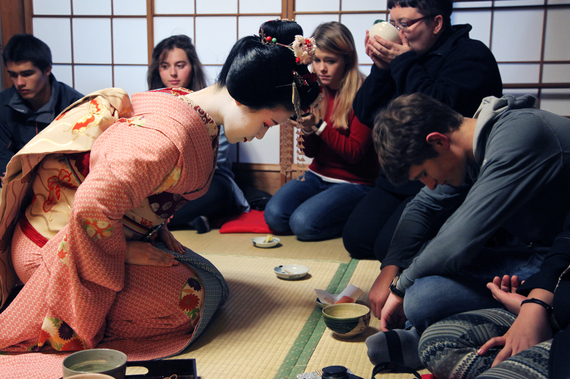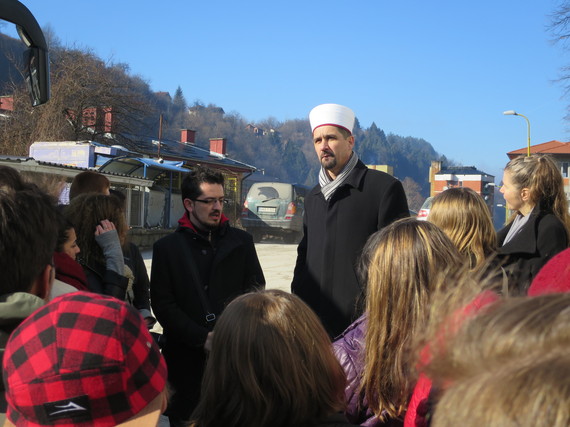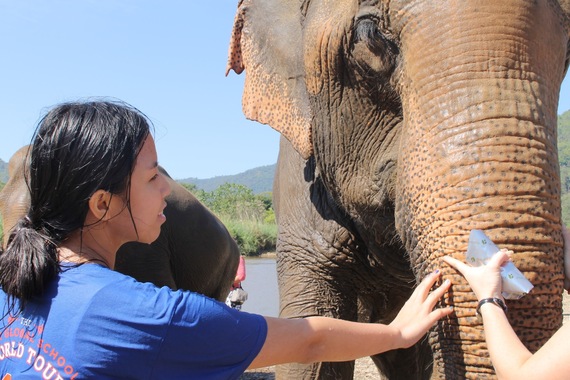The best kind of discovery is a serendipitous one, whether it be discovering your future wife in line at Starbucks, an unclaimed $20.00 bill on the sidewalk, or a book that inspires you to renounce your law practice for a life of celibacy as a newly professed Buddhist monk.
For Malcolm Gladwell, author of Outliers: The Story of Success, one must be a student "of all different mechanisms of chance encounters of the unusual and insightful" to be a serendipitous learner. In a world where it is key to distinguish yourself from others, serendipitous learning seems to be the only authentic pursuit of knowledge left which does not result in an invisible, algorithmic filter bubble edited by Google.
So how does one "find" serendipitous learning when the very essence of serendipity relies on finding value in what is not pursued?
The irony is, serendipitous learning is found only by those who pursue chance encounters: chance encounters with people, with knowledge, and with the wider world. So, what's the dilemma? The dilemma is, most people lack the opportunity, or maybe even the imagination, to expand their own reality outside of the rituals they've prescribed for themselves, therefore limiting their own encounters beyond the ordinary.
Gladwell frames this method of learning to be as simple as conversing with people well outside of one's world. What may be relevant to you may not be relevant to your neighbor, yet conversing with others from all walks of life builds cultural and moral understandings, and allows ideas to cluster in powerful ways. People often view travel as a way to bear witness to the life of another, and often cite travel as the answer to finding meaning amongst the chaos. But is travel really the answer?
THINK Global School, the world's first traveling high school, provides its students with endless opportunities for chance encounters as they travel to 9 countries and experience all walks of life as a prerequisite for their high school graduation. While this extraordinary opportunity may only be granted to 45 international teens, what is key is the institution values the pursuit of chance encounters and structures educational opportunity around that very pursuit.
TGS students learn about geisha traditions in Kyoto, Japan
But serendipitous learning isn't limited solely to schools with access to travel. It's something stationary schools can engage in as well.
"Many schools are organized as they are because they always have been, not because they must be," says Ken Robinson, in Creative Schools: The Grassroots Revolution That's Changing Education. Making the impossible possible only happens when one first pursues possibilities they've never encountered before, which takes both inventiveness and courage.
To value a chance encounter means to apply value to any encounter. While traveling is the most obvious way one can transplant to unfamiliar territory, travel by itself does not provide the awareness and openness required to make meaningful connections with the wider world. There is no value placed on international chance encounters that we are unable to extend locally.
Students, whether stationary or transient, can adapt a discovery mindset that sets them apart from others. Very rarely does anyone, be it a traveler or homebody, take advantage of engagement far beyond their comfort zone. Very rarely, when in line at Starbucks or any other coffee shop, would one take notice of the impatient woman behind them, nor would one consider speaking to said person.
To find the $20.00 bill, we first must see the sidewalk. And to accomplish that, we must cease the endless fixation with our iPhone and instead pay attention to where we're walking. Put down the legal books and take a stroll down the Religion & Philosophy aisle, even if you know nothing about religion and philosophy -- even better, especially if you know nothing about religion and philosophy.
IB Coordinator Adnan Mackovic (left) helps explain Islam during our term in his homeland of Bosnia
It is easy to fall into the daily grind of who we once decided to be and therefore are today. We read the same newspaper we've always read, we call the same friends we've always called, and we visit the same stores we've always visited. We walk through this world with a set of eyes which are as untrustworthy as Google's algorithmic filter. And it's our own fault; we are the programmers of our own ignorance. We've forgotten the value of what it means to see, or to be open to chance encounters with the unknown.
Students all over the world enter and leave classrooms daily yet fail to see value in their course content, stifling their academic understanding and growth. Schools have become the K-Marts of learning, where superficial ideas are mass-produced and sold, yet lack the lifetime warranty that really matters ten years down the road.
Dr. Richard Davidson, a neuroscientist at the University of Wisconsin-Madison, concludes, "Your grades in school, your scores on the SAT, mean less for life success than your capacity to co-operate, your ability to regulate your emotions, your capacity to delay your gratification, and your capacity to focus your attention. Those skills are far more important--all the data indicate--for life success than your IQ or your grades." *
By understanding what can be gained by being open to our surroundings and assigning each encounter value, other authentic opportunities will strike us more often and more deeply as a direct result of our awareness. While we should encourage schools to ditch traditional models that restrict opportunities for serendipitous learning, we should also encourage students to search out opportunities that their peers would likely turn a blind eye towards; talk to a janitor, select a random book from the library to read, break into the auditorium sound booth. Whatever it is you do, set out to capitalize on all of the knowledge lurking in the background that others are too paralyzed to embrace. More importantly, students should no longer see their school as an institution for learning, they should see every moment of living as an institution for learning.
Yada learns about elephant conservation in her hometown of Chiang Mai, Thailand
Robinson further discusses the importance for teaching children how to employ their natural creativity as the seeking of these talents "might insulate them against the unpredictability of the future in all parts of the world." The only way to arm ourselves against the unpredictability of the future is to prepare for the future of unpredictability. And what better way to do that than to live unpredictable lives ourselves? We have to value chance encounters, abroad and at home, or live to repent not having valued them. The dilemma is ours to rectify.
-Breanna Reynolds, IB Language and Literature teacher at THINK Global School
*Michio Kaku, The Future of the Mind: The Scientific Quest to Understand, Enhance, and Empower the Mind



